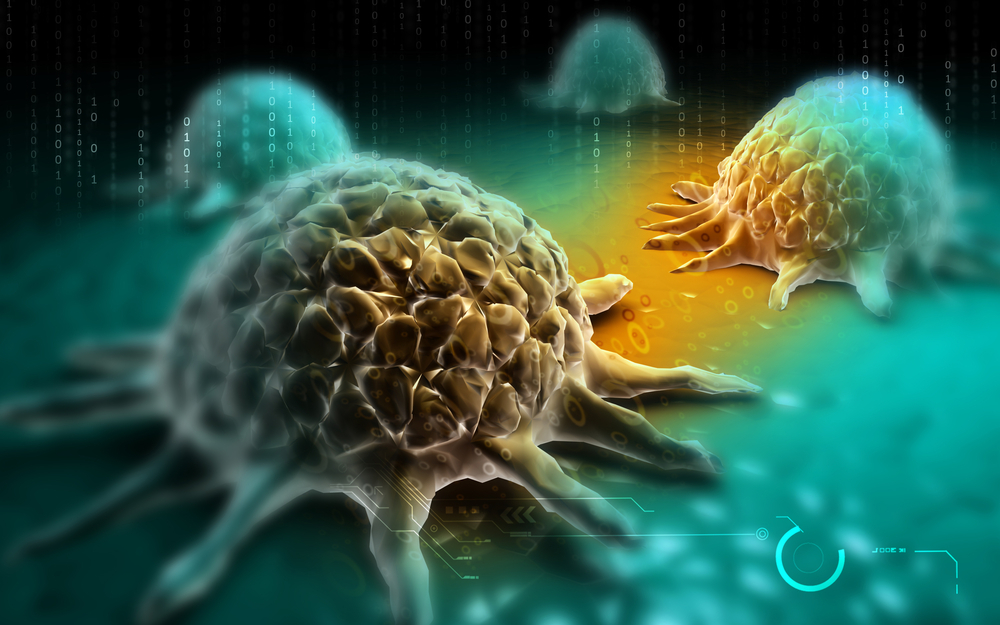In a new study entitled “Synergistic Innate and Adaptive Immune Response to Combination Immunotherapy with Anti-Tumor Antigen Antibodies and Extended Serum Half-Life IL-2,” researchers show how combining both innate and adaptive immune strategies in immunotherapy boosts anti-tumor activity and prevents tumor re-formation. The study was published in the journal Cancer Cell.
Cancer immunotherapies have been based either on enhancing adaptive immunity or innate immune mechanisms. Adoptive T cell therapy is an example of the former, while anti-tumor antibodies ultimately attract cells of the innate immune system to destroy cancer cells. Now, researchers at the Massachusetts Institute of Technology (MIT) show how combining both approaches, adaptive and innate immune responses, is an efficient strategy to stop tumor growth in mice with a highly aggressive form of melanoma, the most serious type of skin cancer.
The team had previously discovered that a signaling molecule in the immune system, Interleukin 2 (IL-2), is capable of effectively inducing both adaptive and innate immune responses, but the trigger failed when delivered to patients in phase I clinical trials. The MIT team ultimately realized that the effect was lost when patients received IL-2 because the protein was cleared in the kidneys one hour after administration, therefore not staying in circulation for enough time to trigger the response. The researchers engineered an IL-2 fusion protein to delay its clearance and discovered that when mice suffering from this aggressive type of melanoma were administered the new engineered IL-2, together with tumor-targeted antibodies, they blocked tumor growth.
The team performed further studies and observed that the new combined therapy induced a significant intratumoral increase of cytokines and higher penetration of T cells. This was mediated via NK cells and macrophages and also neutrophils, one of the first lines of defense of the immune system. Ultimately, the combined therapy created an environment inside tumors that is optimal for T cells’ anti-tumor activity. The strategy was also shown to confer long-term efficacy against tumors, as evidenced by re-injection of tumor cells months after treatment, which resulted in no tumor formation.
Dane Wittrup, the Carbon P. Dubbs Professor in Chemical Engineering at MIT and study lead author commented in a press release, “An anti-tumor antibody can improve adoptive T-cell therapy to a surprising extent. These two different parts of the immune therapy are interdependent and synergistic. The antibody-driven innate response creates an environment such that when the T cells come in, they can kill the tumor. In its absence, the tumor cells establish an environment where the T cells don’t work very well.”


